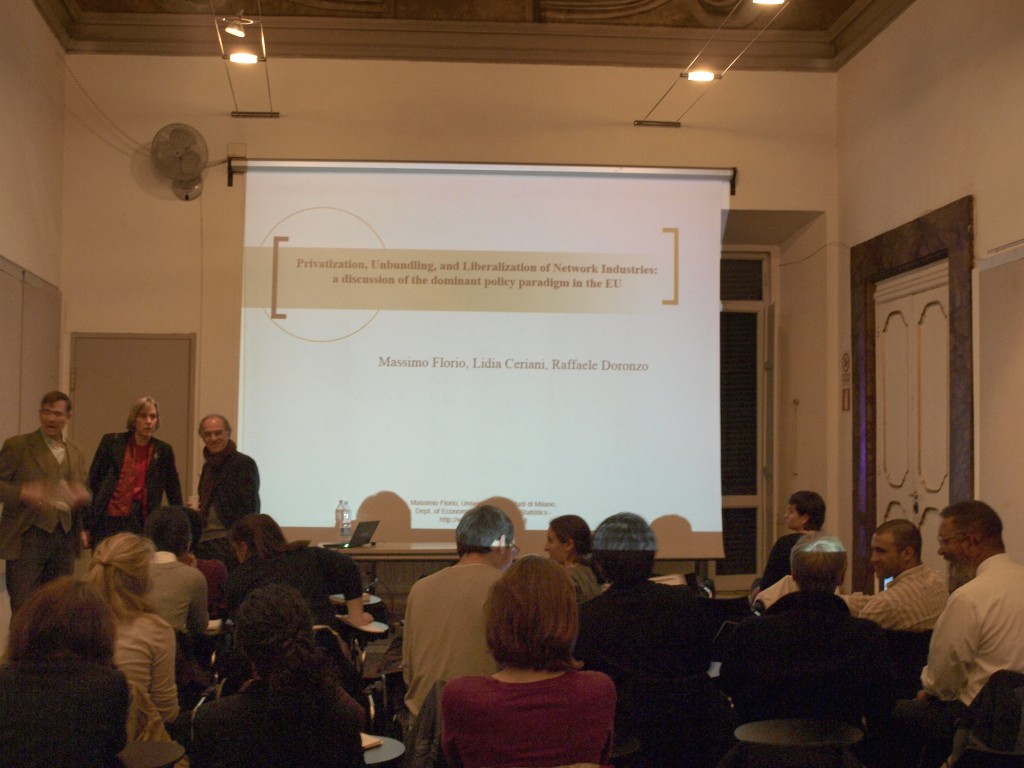
Massimo Florio, the Jean Monnet Chair of Economics and European Integration at the University of Milan, gave a special lecture at Palazzo Lazzaroni about “Consumers’ Welfare and the Reform of Network Industries in the European Union.”
“Wait, say what???” …asks the design-oriented planner.
As the name of the lecture points out, Prof. Florio’s topic involved a wide range of advanced economic theory that goes well beyond the reach of the ordinary planner. The readings in preparation for his lecture were quite dense – it was the kind of reading where a single read-through did not qualify for a sufficient understanding. Once the graphs and economic terminology were sifted out, however, one discovered that the golden conclusion served a very clear and powerful argument.
The argument was the following: that privatization does not always work when it comes to the delivery of urban infrastructure, such as trash and water. What makes it more interesting is that Massimo Florio is not a radical economic theorist, but a very traditional one.
“Say what???”
This time around, a different group lashes out in confusion of the themes that are being discussed. The following group represents the many who are proud of a hands-free, laissez-faire economy. Privatization, many of them say, is always good, even for the service industry, since competition always leads to better pricing and greater affordability. And who wouldn’t agree with one of the most basic statements in the study of economics? What makes a traditional economic theorist like Massimo Florio challenge traditional economic theory?
Massimo points out that the world of competition in the service delivery sector differs greatly from a mainstream private business and may not necessarily guarantee the best pricing strategy for the public.

The problem deals with asset specificity – while in theory, for example, two water companies in competition with each other would lower pricing, and become free from the bureaucratic tangle of politics, many water monopolies have made tremendous investments in the construction of their own underground infrastructure. A new water company, therefore, would be unable to easily enter the business of water since they would need to invest a considerable amount of money to create an infrastructure that rivals that of the current monopoly. Another problem deals with responsibility – if a private company suddenly enters bankruptcy, a municipality may enter a period of shock where the city suddenly becomes helpless in filling a service gap of its own. This is why past studies have shown that many cities are now implementing reverse privatization in an effort to get service delivery back into their own hands, whether it would be partial or full.
These explanations, however, are only the tip of the iceberg of Professor Florio’s argument. To learn more about his work, visit his homepage at http://florio.economia.unimi.it.
